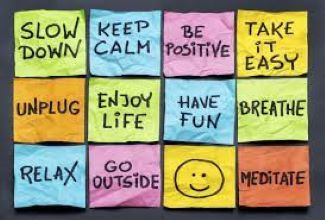Effective Stress Management: Strategies for a Healthier Life
In today’s fast-paced world, stress has become a common companion in our lives. While a certain level of stress can be motivating, prolonged and unmanaged stress can lead to serious physical and mental health issues, including anxiety and depression. Thus, mastering the art of stress management is crucial for our overall well-being.
Tips for Effective Stress Management: Strategies for a Healthier Life
- Explore Relaxation Techniques:
- Mindfulness Meditation: Practicing mindfulness meditation helps ground you in the present moment, reducing stress and promoting mental clarity.
- Deep Breathing Exercises: Simple breathing exercises can lower stress hormones, promoting a calm and relaxed state of mind.
- Progressive Muscle Relaxation: This technique involves consciously relaxing different muscle groups, releasing physical tension and promoting relaxation.
- Prioritize Physical Activity:
- Regular Exercise: Engaging in regular physical activity releases endorphins, natural mood elevators that combat stress.
- Yoga and Tai Chi: These practices combine movement and mindfulness, offering holistic stress reduction and improved flexibility.
- Connect with Nature:
- Nature Walks: Immerse yourself in the healing power of nature through leisurely walks, reducing stress and restoring mental well-being.
- Outdoor Activities: Participate in outdoor activities like hiking or gardening, allowing you to unwind and reconnect with the natural world.
- Embrace a Healthy Lifestyle:
- Balanced Nutrition: A well-rounded diet rich in nutrients supports your body’s ability to cope with stress.
- Prioritize Sleep: Ensure quality sleep by establishing a consistent sleep schedule and creating a calming bedtime routine.
- Limit Stimulants: Reduce caffeine and alcohol intake, which can exacerbate feelings of stress and anxiety.
- Foster Social Connections:
- Open Communication: Sharing your thoughts and feelings with loved ones can provide emotional support and alleviate stress.
- Professional Guidance: If stress becomes overwhelming, consult a mental health professional for expert assistance.
- Effective Time Management:
- Prioritize Tasks: Create a structured task list and focus on high-priority activities first. Breaking tasks into smaller steps eases stress.
- Set Boundaries: Saying no when necessary helps prevent overcommitment and maintains a healthy balance.
Conclusion: Making Stress Management a Lifestyle
Incorporating effective stress management into your daily life requires dedication and practice. To make it an integral part of your routine:
- Begin Gradually: Start with small steps, like short meditation sessions or brief walks, and gradually expand your practice.
- Allocate Time: Schedule dedicated time for stress-relief activities in your daily schedule. Treat them as essential appointments.
- Consistency Matters: The benefits of stress management compound over time, so strive for daily practice and make it a lifelong commitment.
- Stay Present: Cultivate mindfulness throughout the day. When stress arises, pause, take a breath, and refocus on the present moment.
- Personalize Your Approach: Experiment with different techniques and find what resonates with you personally.
- Seek Support: Don’t hesitate to lean on friends, family, or professionals if managing stress feels overwhelming.
By embracing effective stress management strategies, you empower yourself to navigate life’s challenges with resilience and maintain your well-being.












